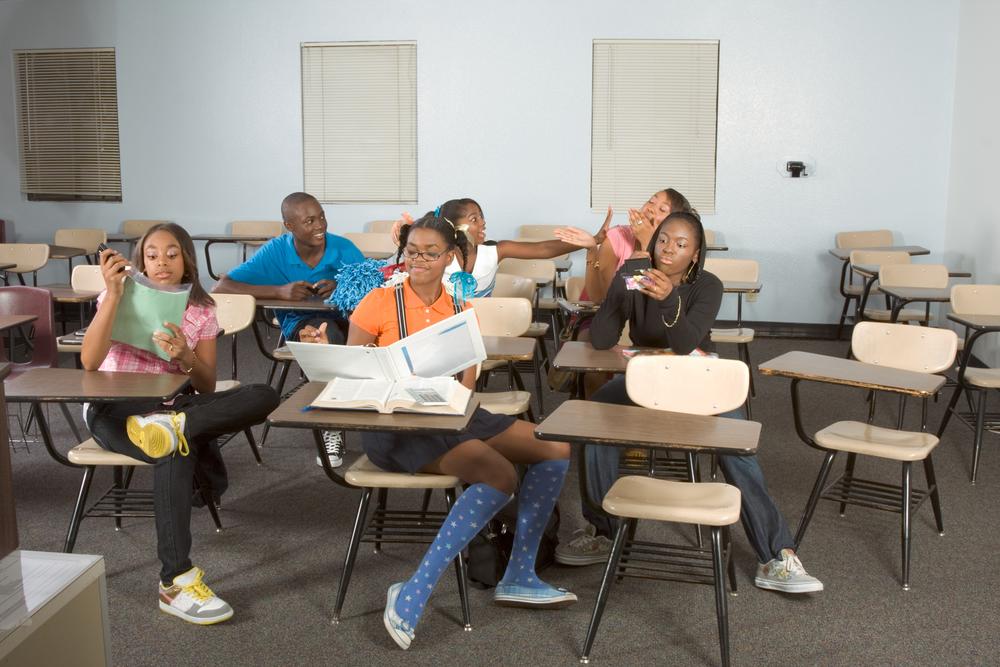Features
Mfonobong Inyang: Online Learning or Home Schooling?
It is quite understandable that schools are still physically closed because mass gatherings aren’t allowed yet. It also hits different because children are particularly vulnerable and it would be very unwise to take a gamble on their safety. Whatever choice is made between home-schooling and online learning, the child’s unique demands should be taken into consideration.
 One of the nuances of this pandemic is the brandishing of words and phraseologies that didn’t form a conscious part of our vocabulary ab initio. ‘New normal’, ‘palliatives’, ‘social distancing’, and some others have gained notoriety under rather unfortunate circumstances.
One of the nuances of this pandemic is the brandishing of words and phraseologies that didn’t form a conscious part of our vocabulary ab initio. ‘New normal’, ‘palliatives’, ‘social distancing’, and some others have gained notoriety under rather unfortunate circumstances.
This disruption is changing the landscape of human interaction and education – which is of utmost importance – has been caught in the crossfire.
Last week, I had conversations with some parents who had received a few advice on the way forward for their children, in terms of learning from the schools. I tried my best not to lean towards either online learning or home-schooling but only made a case for both by presenting the pros and cons with the hopes that they make an informed choice.
Here are six pros and cons of both online learning and homeschooling. This will help parents, caregivers and other stakeholders make the right decision.
Home Schooling
- Flexibility: For the child(ren), the learning hours aren’t set in stone, the academic workload can be adjusted to suit the situation. Also for the parents, it affords them the opportunity to set learning periods within less demanding hours.
- Saves more money: This is a big incentive for those who opt for this approach because it collapses all the supposedly ‘exorbitant’ tuition fees into basic costs of textbooks, stationery, and minimal miscellaneous costs.
- Continuous learning: Many parents take such opportunity to relive their school days through homeschooling. It refreshes the knowledge of parents who in teaching their children, are also learning something.
- More parent-child interaction: Since the parent is also the teacher, there is a perspective on teaching that is established beyond the curriculum. The child has the luxury of sharing more personal challenges than he/she otherwise would.
- Independence: Many have argued that homeschooling makes the child more independent-minded and many of them eventually take the entrepreneurial route. This, they say, is owing to the discipline instilled by this approach.
- Safer: In a world where we have some pedophiles in schools, many believe this is much safer.
Cons of Home-Schooling
- Opportunity cost: The real cost of this approach is really the fact that it requires a parent or caregiver to stay at home with the child. Except the parent works from home, that is, a mom-preneur or dad-preneur, it might not be ideal for most parents.
- Professionalism: Not every parent is skilled or has the expertise required to formally educate their children. The concern is that the quality of learning received by the child might be haphazard, erratic, and highly mediocre.
- Unhealthy social life: Especially for primary school pupils, this approach robs them of the necessary interaction with their peers who make the learning environment more interesting and engaging. It may turn them into loners instead.
- Lack of learning tools: Beyond the basics – like textbooks, modern learning, in today’s world, offers more advanced and technical forms of teaching that parents, with all their good intentions and best efforts, may not have access to.
- Absence of extra-curricular activities: Aside from classroom learning, the absence of other activities that are designed to develop the child mentally, physically, and psychologically will lead to an imbalance of the child’s education.
Online Learning
- Convenience: It is easily the biggest pull for parents who want to protect their children in the middle of a pandemic while also ensuring they get quality education. Learning from home is a win-win on all levels at this time.
- Professional: The modules, course work and assignments are carefully curated by top education experts who have the benefit of aggregated research behind them. It’s hard, if not impossible, for any parent to match this advantage.
- Variety: There are different subjects that are administered by different experts. Parents can only know so much about any given topic and still have to look up the knowledge of these connoisseurs if and when they want in-depth learning.
- Flexibility: Students can learn at their own pace instead of cramping learning hours into the period where their parents are available – which may not be productive for them. Gaming, television, lunch or rest can happen in-between.
- Children with special needs: This approach is best suited for children who need significant assistance with their learning processes. Parents, or those familiar with their history, can better enable learning by guiding them through unique challenges.
- Scope: Online learning is essentially universal and is more admissible as a form of education in many countries than home schooling is. It integrates a global curriculum and domesticates them for students in different countries.
Cons of Online Learning
- Expensive: Not everyone can afford sufficient data, a smartphone, laptop, or tuition fees for their children. You can’t improvise or negotiate the costs; it is what it is.
- Lack of cohesion: Many of the schools aren’t using a cohesive curriculum but have varied outlines, therefore raising valid questions of what constitutes the standard learning syllabus. It’s a nightmare for parents to decide which is preferable.
- Uncensored content: Without necessary firewalls and parental guidance, the internet can become a dangerous place for the untamed curiosity of children. Unfortunately, these two safeguards are not present in most online classes.
- Indiscipline: The oversight of learning done by teachers is absent, thereby leaving children to the often laissez faire approach of parents. Education isn’t just about learning but also about character development.
- Documentation: The assessment of most online learning is very skeletal, thus creating a data collection gap. The feedback upon which the level of the child’s learning is predicated is hard to determine if there is no system in place to aggregate such.
- Tech-savvy: It requires a working knowledge of how tech gadgets and the internet works and most parents, who have to supervise their children, aren’t conversant with such. This leaves the entire experience not well optimized.
These pros and cons pay more attention to primary and secondary school students and not their tertiary counterparts. It also doesn’t factor in other complexities. But at its core, it provides some closure to parents and gives schools and regulators an insight into the different dynamics that are considered. Even government primary and secondary schools are now exploring radio and television.
It is quite understandable that schools are still physically closed because mass gatherings aren’t allowed yet. It also hits different because children are particularly vulnerable and it would be very unwise to take a gamble on their safety. Whatever choice is made between home-schooling and online learning, the child’s unique demands should be taken into consideration.
Until such a time when physical classroom learning resumes, we have to do whatever it takes to protect our children. For parents and guardians, ensure you monitor their mental health closely while constantly whispering into their ears that this too shall pass!






















